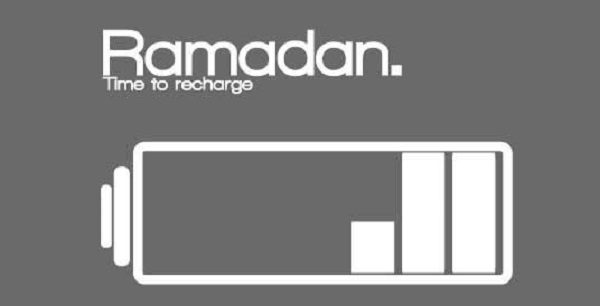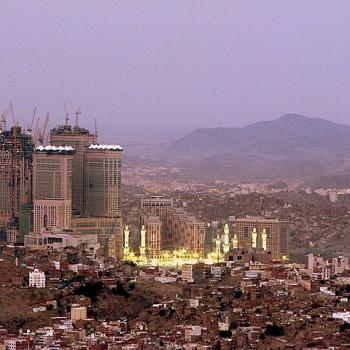I am an aspiring potter and love to be covered in clay. I’m excited about the process of what clay does even more than what products my playing with mud might yield. More than anything else, being a potter gives me head and heart space to reflect on humility, patience, submission and being passionately hopeful that whatever comes out of the process is just what I needed to learn, experience, and live to be who I am. Sometimes there’s a pretty pot I can pour tea out of.
In many ways this is how Ramadan is for me as an activist. Essentially, fasting is denying yourself something, but it really becomes more about how that denial takes place, what process makes it be more than just not eating or drinking. Principles from Ramadan are critical then in how they reinforce my work as an advocate:
Start from the possible — Ramadan reminds us that rejuvenation is possible, we start where we are towards spiritual revival. We realize we’re able to make it through a day — a month! — of fasting when it seemed otherwise impossible. This translates into work as activists to meet others where they are, recognize their capacity and their aspirations. We reject the negative because we know the possible is stronger. We are reminded that no one is given a burden she cannot carry. So perseverance in our work comes from leaning on this through difficult times.
Be intentional — Every morning before sunrise, a fasting person voices an intention to fast. It’s not enough to wake up and not eat or drink. It has to be premeditated and concerted. Being intentional makes for more effective advocacy but also provides a compass for us as we get pulled into whirlwinds of challenges and demands. It also allows for constant reflection on why things are being done, what is to gain, how success and failure are effecting our own perceptions and actions.
Build empathy — One key thing we learn about fasting as children is it’s to understand those who have very little, who are hungry not by choice. As activists this is a basis for our justice work. Stand in another’s footsteps without judgement. Ramadan also reminds us of Mercy as a primary Divine attribute and what we as humans must practice with one another. If we are empathetic, we act mercifully and compassionately and practice forgiveness for shortcomings, our own and others’.
Appreciate gradualism — As we move through the month, fasting becomes easier, more natural. Our bodies adjust to new rhythms and impositions and by the end of the month, it’s not as difficult. We’re reminded that there is value in incremental change; we have to recognize that its work over time to make lasting things happen.
Practice hospitality — Ramadan is about feeding others; eating is as important as not eating, really. But we’re reminded that the obligation of hosting is extended to how activists treat those they interact with. An openness in attitude, a willingness to give of time and resources without expecting reciprocity is how a faith inspired advocate creates both relationships as well as goodwill toward outsiders who may not agree/understand.
Find your compass — During Ramadan, spirituality is intense. Fasting, praying, reading scripture are daily components. And most are done in fellowship with others. But it’s also a time to renew personal connections to these without relying on others. What motivates and inspires me from my faith or other spiritual traditions that I can lean on in my work? Prayers and verses we bump into during spiritual infusion can be tools and supports in our daily work. Creating more time and options for self-care and reflection throughout the year is critical for being more effective as an activist.
So as I fast this Ramadan and serve tea from my teapot at sunset, my prayers for peace in the world will be steadfast, as will those for peace within my own self. And as many of my compatriots, I’ll use the month to recharge for more work to be done.
RAMADAN BASICS
- Ramadan, one of 5 basic obligations for believers in Islam, is the 9th month of the lunar calendar and lasts between 29-30 days.
- Adult believers are proscribed to fast from all food and drink from dawn to sunset except pregnant and nursing mothers, travelers, menstruating women, and those who are ill.
- Fasting persons also refrain from smoking, sexual intimacy, and are also strongly discouraged from engaging in harmful behaviors such as excessive disagreements, acting in anger, or expressing ingratitude.
- Muslims typically participate in increased prayers, charity, recitation of the Quran and fellowship with others. Spiritual rewards are said to be increased during this month, and it is the month during which Prophet Muhammad first received revelation.
- As there are over 1 billion Muslims worldwide, celebrations and observances of Ramadan are diverse and unique to each cultural context.
- In 2015, the first day of Ramadan is June 18. Ramadan ends on July 17 with the holiday Eid Al-Fitr.
Afeefa Syeed is a cultural anthropologist who most recently served as Senior Advisor at US Agency for International Development (USAID). She is presently Scholar Consultant for the Carter Center, Research Associate with Cambridge University’s Institute on Religion & International Studies, Senior Fellow and Advisory Council Member for Institute for Global Engagement’s Center for Women, Faith & Leadership. She works in areas of religion and development, gender inclusion, countering extremism and integrating cultural context into development and diplomacy. Afeefa is based in Washington DC. This post originally appeared on the Faith Trust Institute website.
This piece is a preview to our #30Days30Writers Ramadan series on Altmuslim.












